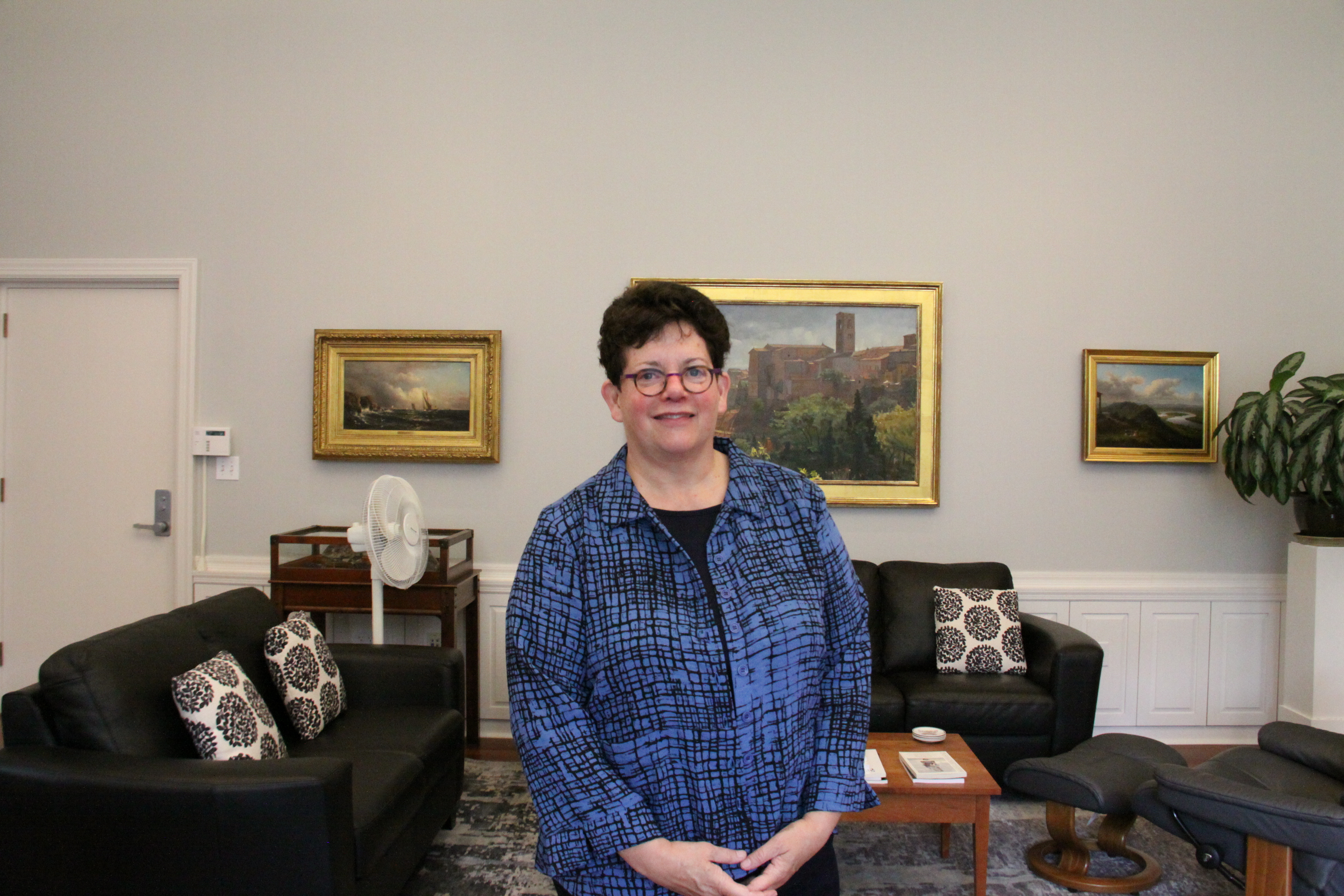
Amherst College President Biddy Martin sees her school's commitment to diversity as a moral obligation. (Kirk Carapezza/WGBH)
Colleges and universities find themselves under increasing pressure to increase the racial and socioeconomic diversity of their student bodies.
The Supreme Court ruled last summer that colleges can consider race as one factor in admissions. Now, the Trump administration is reopening an investigation into a complaint that accuses Harvard of discriminating against Asian-American applicants.
At other selective but less diverse schools, more than 75 percent of students come from high-income families while only 3 percent come from low-income families.
Economists maintain these schools have the money to admit a lot more poor students. A new report from Georgetown's Center on Education and Workforce finds nearly 90,000 low-income students have the grades and test scores to get into selective colleges, but don't. Instead, they go to less selective colleges that tend to have lower graduation rates.
In our second episode, WGBH’s On Campus Radio takes a look at diversity on college campuses.
WGBH’s Kirk Carapezza visits a selective college in western Massachusetts that has received national notice for its high degree of student diversity. Amherst College has achieved a certain level of diversity by focusing on both class and race and tapping its endowment to provide financial aid to low-income students.
Then we sit down with Amherst graduate and Harvard Graduate School of Education Professor Tony Jack who studies what he calls the "privileged poor."
We also talk to current students at Amherst and Harvard about what they get out of having a diverse class, and former Vassar College president Cappy Hill, who, as managing director at the nonprofit Ithaka S+R, says colleges could make a greater commitment to increasing access to higher education.
Plus, a few years ago the Maine Legislature took a hard look at its high school graduates and saw that half of those who go to college needed remedial help with math and writing. So, the state mandated that all seniors show they have mastered their core subjects to graduate. WGBH’s Bianca Vazquez Toness travels to Kittery, Maine to report on how that state law will be put to the test as the first seniors from that town’s high school apply to college this fall.
Finally, we talk to Patricia Russell, interim executive director of the Mastery Transcript Consortium; Jim Roche, associate provost for enrollment management at UMass Amherst; and Joy St. John, dean of admission and financial aid at Wellesley College, about how Maine’s new grading system might change the way schools evaluate transcripts.
You can also find all On Campus Radio episodes on iTunes.
EPISODE ONE: The State of Free Speech On Campus










